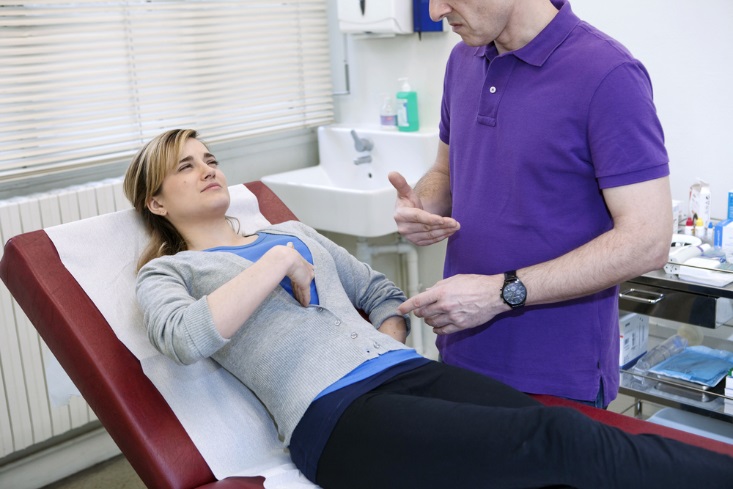Sensory neurons within the esophagus wall detect mechanical and chemical stimuli like lumen distention, resulting in pain, and acid reflux, causing heartburn. Patients with a hypersensitive esophagus have a more intense perception for the same degree of stimulation compared to patients without a hypersensitive esophagus. The etiology and underlying pathophysiology of esophageal hypersensitivity are not well understood. It is well known, however, that stress, anxiety, depression and panic attacks exacerbate esophageal hypersensitivity.
Around 5% of patients, on chronic long-term PPI treatment, presenting to Houston Heartburn and Reflux center, have no evidence of elevated esophageal acid exposure when properly evaluated with upper endoscopy and esophageal pH testing. Consequently, PPI treatment and especially high dose PPI treatment are not warranted. Patients with a hypersensitive esophagus who don’t have evidence of GERD are not candidates for anti-reflux surgery either. Rather, treatment should concentrate on stress reduction, depression management and the use of neuromodulators like Amitriptyline, a tricyclic antidepressant.
It is crucial to distinguish esophageal hypersensitivity from GERD. Both esophageal hypersensitivity and GERD related symptoms are equally bothersome and negatively affect quality of life. However, Nissen fundoplication, a reliable treatment for GERD, does not help patients with esophageal hypersensitivity. Two years ago, a young female patient presented to my office with severe heartburn in the setting of irritable bowel syndrome associated with diarrhea and morbid obesity. Patient suffered from chronic anxiety and panic attacks. Interestingly, she reported that OTC PPIs alleviated her heartburn as well as the diarrhea episodes associated with IBS. Upper endoscopy with ambulatory pH testing showed no evidence of GERD and negative symptom-reflux association. Esophageal manometry was also normal. I reassured the patient and clearly explained to her that she has an intact anti-reflux barrier. As a result, I advised her to stop PPI intake. My first line of treatment was referral to a specialist for a thorough psychiatric evaluation to manage her anxiety and panic attacks. Stress reduction along anxiety/panic attack control helped her IBS as well as esophageal hypersensitivity symptoms. Patient was able to adopt a healthier diet and with the addition of probiotics like yogurt and sauerkraut she had excellent IBS symptom control. She subsequently underwent sleeve gastrectomy without hiatal hernia repair and did very well. Patient continues to be heartburn free 2 years after initial evaluation.
Thorough and comprehensive acid reflux evaluation, high index of suspicion and careful patient selection is crucial when it comes to GERD management.

